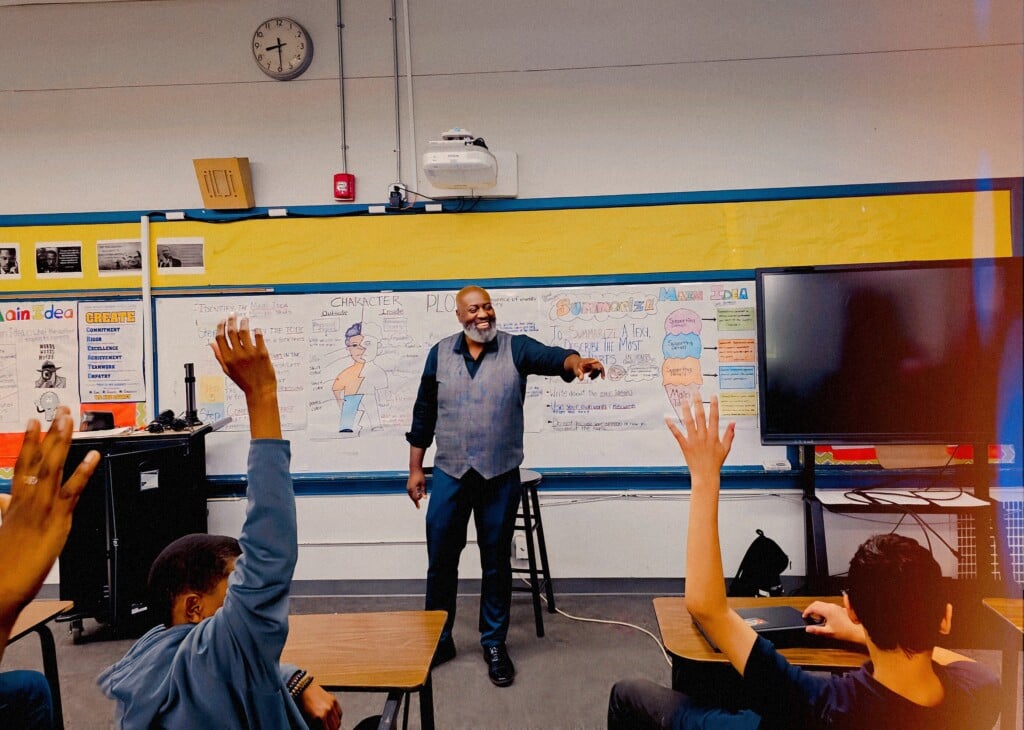Expert Primary Science Tuition Singapore for Understanding Complex Concepts
Expert Primary Science Tuition Singapore for Understanding Complex Concepts
Blog Article
Discover the Necessary Benefits of Comprehending Main Scientific Research for Young Students
The value of main science education and learning for young students extends much past simple expertise purchase; it acts as a fundamental column in establishing essential skills such as important reasoning, analytic, and imagination. Involving with scientific concepts with inquiry-based and interactive tasks not just grows inquisitiveness however additionally lays the foundation for resilient, certain students. As we check out these benefits additionally, it ends up being clear that the effects for future scholastic and individual development are extensive. What specific methods can instructors employ to maximize these benefits?
Enhancing Crucial Thinking Skills
Promoting crucial thinking skills in young learners is important for their cognitive growth and future scholastic success. Essential reasoning enables children to evaluate information, review evidence, and make educated decisions, which are crucial abilities in today's information-rich society. By participating in scientific inquiry, young students can enhance these skills as they discover ideas through experimentation, observation, and thinking.
In main science education and learning, educators can facilitate vital thinking by motivating students to ask inquiries, formulate theories, and perform experiments. This hands-on technique permits youngsters to exercise analytic and establish logical reasoning skills. As an example, when students examine the properties of materials or the concepts of motion, they find out to assess their searchings for critically and attract verdicts based on evidence.
In addition, conversations and joint projects can advertise critical reasoning by offering possibilities for students to express their ideas, challenge assumptions, and think about diverse viewpoints. By producing a supportive environment that values query and representation, educators can support critical believing abilities that equip young learners to come to be independent thinkers and long-lasting students. Ultimately, boosting these abilities lays a durable structure for their future scholastic endeavors and personal development.
Fostering Inquisitiveness and Expedition

Primary scientific research education and learning gives an organized environment where young learners can explore different phenomena via hands-on experiments and observations. By permitting them to communicate with products and participate in inquiry-based discovering, instructors create possibilities for kids to formulate theories, examine their ideas, and draw conclusions. Such experiences support a feeling of marvel and excitement concerning science.

Building Self-confidence in Issue Fixing
Building self-confidence in analytical is an important part of key scientific research education that equips young students to approach challenges with resilience and imagination - primary science tuition Singapore. They create necessary skills in important thinking and evaluation when youngsters are motivated to involve with scientific ideas via hands-on tasks and inquiry-based understanding. This procedure not only enhances their understanding of scientific concepts however also cultivates a sense of ownership over their learning
To construct self-confidence, instructors must develop a helpful environment where errors are considered as possibilities for development as opposed to failures. This encourages pupils to take risks Your Domain Name and discover various options to issues. By giving scaffolding and guidance, instructors can aid students browse complex jobs, progressively boosting their self-reliance in problem-solving circumstances.
Furthermore, collaborative discovering experiences, such as group jobs or experiments, can better boost trainees' self-confidence as they discover to verbalize their thoughts and listen to others' perspectives. These interactions nurture social abilities and strengthen the idea that problem-solving is frequently a cumulative undertaking. Inevitably, growing self-confidence in problem-solving prepares young students for future scholastic challenges and furnishes them with the tools essential for long-lasting understanding.
Motivating Creative Thinking and Advancement
In the realm of main science education and learning, urging creative thinking and technology is important for cultivating a dynamic learning atmosphere. By promoting a society where young learners can discover ideas and experiment openly, educators aid trainees create crucial thinking abilities and an enthusiasm for exploration. Creative thinking in scientific research encourages youngsters to ask questions, develop theories, and take part in hands-on activities that boost their creative imagination.
Incorporating flexible tasks and inquiry-based discovering into the curriculum enables trainees to express their distinct point of views and services. When entrusted with resolving a trouble related to their environment, students can conceptualize multiple strategies, leading to innovative outcomes that showcase their originality. This not only strengthens their understanding of clinical ideas but likewise infuses a sense of possession over their learning procedure.
Additionally, imaginative science education supports collaboration amongst peers, as trainees usually share ideas and improve one an additional's understandings - primary science tuition Singapore. This collective spirit advertises not only innovation yet additionally essential social skills. Hence, by prioritizing creativity and technology in key scientific research education and learning, we equip young students to think seriously, embrace obstacles, and envision possibilities, laying a solid foundation for lifelong learning and exploration
Getting Ready For Future Understanding Obstacles
Young learners' capability to browse future knowing challenges hinges on a solid foundation in primary science education and learning. This foundational understanding furnishes trainees with essential believing abilities and a methodical technique to analytical, necessary for taking on complicated problems in an ever-evolving world. Key science cultivates inquiry-based understanding, urging pupils to ask concerns, useful content check out theories, and take part in hands-on experiments.
As they create these skills, learners end up being skilled at examining data, acknowledging patterns, and drawing educated verdicts. Such competencies are his response vital not only in scientific fields however likewise in modern technology, design, and mathematics (STEM), where interdisciplinary knowledge is significantly essential.
Additionally, primary science education and learning grows a sense of inquisitiveness and resilience in young learners, allowing them to view obstacles as possibilities for growth. As they come across and conquer obstacles in their scientific explorations, they construct confidence in their capability to adapt and innovate.
Ultimately, a solid foundation in main scientific research not just prepares young students for academic pursuits however likewise equips them with the devices required for long-lasting learning and adaptability in a rapidly changing global landscape. By purchasing main scientific research education and learning, we are buying the future possibility of our students.
Verdict
Recognizing primary science is crucial for young students, as it cultivates essential thinking, curiosity, and creativity. Ultimately, the advantages of key science education and learning prepare children for future scholastic pursuits and infuse long-lasting knowing routines crucial for growing in an ever-evolving globe.
The importance of primary scientific research education and learning for young students expands far beyond mere expertise procurement; it offers as a basic pillar in establishing essential abilities such as critical thinking, analytical, and creativity. By developing an encouraging atmosphere that values questions and reflection, teachers can support critical thinking skills that equip young learners to become independent thinkers and long-lasting learners. Thus, by prioritizing imagination and innovation in main science education and learning, we equip young students to assume seriously, welcome obstacles, and imagine possibilities, laying a strong foundation for lifelong knowing and expedition.
Young students' capability to browse future learning challenges pivots on a solid structure in key scientific research education and learning.Recognizing primary science is important for young learners, as it promotes vital reasoning, curiosity, and creativity.
Report this page